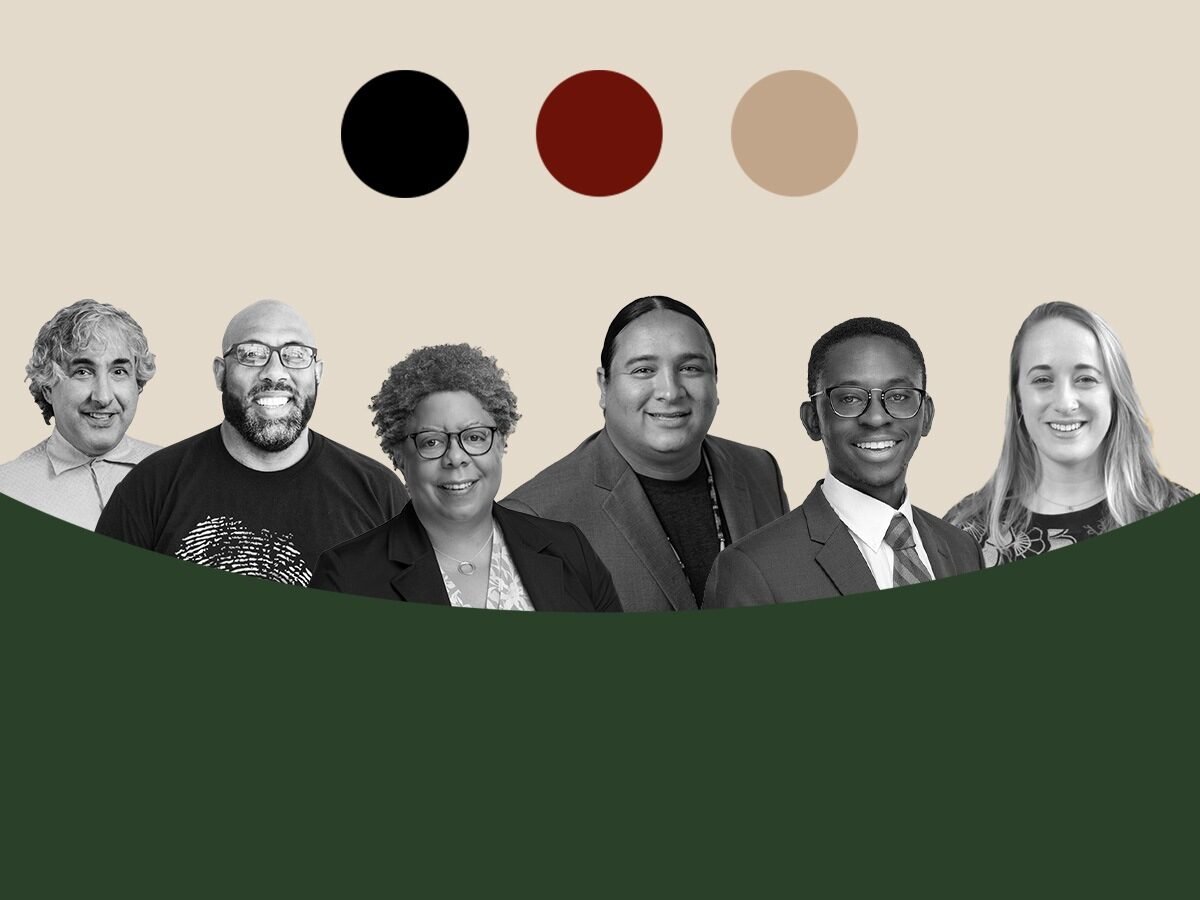

This article is part of our weekly series—The Promise of Targeted Universalism: Community Leaders Respond—that NPQ is publishing in partnership with the national racial and economic justice nonprofit Prosperity Now. In this series, writers examine how targeted universalism—a narrative framework that advocates the use of targeted approaches to achieve universal goals—can inform efforts to close the racial wealth gap, community by community.
The aftermath of George Floyd’s murder ignited what many have called a new racial reckoning. But a true reckoning goes beyond recognition and acknowledgement and engages in difficult conversations that can foster real change. A true reckoning requires a willingness to shake up the status quo. Too often, those of us seeking racial justice and equity find ourselves playing defense to stop bad policies and confront bad behavior.
But what is needed now is an aggressive offense that reaches for the big plays, to include the systemic change and large-scale solutions that begin to dismantle the structures that have precluded far too many people from building economic power over centuries.
Here is the state of race-based economic inequality as it exists today: The US income poverty rate for people of color is more than twice than that of white households. Black workers are more than twice as likely to be unemployed as their white counterparts. Estimates vary, but Black and Brown families continue to have far, far less wealth than white families. A recent Federal Reserve survey noted that “the typical white family has eight times the wealth of the typical Black family and five times the wealth of the typical [Latinx] family.” Struggling just to make ends meet, these households often cannot save for emergencies or build wealth that can be transferred to their children. The effects of structural racism have been, in a word, intergenerational.
There’s more. If one compares wage and income numbers over time, one finds remarkably little change. The same is true with wealth. One indicator: the Black homeownership rate. Homeownership, of course, is a leading source of family wealth. Nationwide, the Black homeownership rate today is 44 percent, only marginally higher than the 41.6 percent Black homeownership rate in 1970, over a half century ago.
We must do better.
Since 1979, Prosperity Now—a national nonprofit based in Washington, DC—has been a persistent voice championing economic opportunity, innovating outside of and beyond existing systems to build power for all communities. Over the past two decades, for instance, hundreds of organizations in our network have helped an estimated 922,000 children nationwide receive subsidized savings accounts. These savings accounts encourage youth to invest in their future (such as a college education) and build wealth over time. We are proud of this work but acknowledge that working for increased opportunities is clearly insufficient. Mitigating the effects of a broken economic system is not enough to bring about real, sustainable repair needed to transform the current system and rebuild our economy from the ground up.
To address this, recently we completed a comprehensive strategic planning process to identify systemic levers for change that center those most directly impacted by injustice in all aspects of our work. This requires an explicit focus on racial economic justice. This strategy seeks to advance the work of frontline advocates by connecting them with supportive policies and practices at the national, state, and local levels.
We recently unveiled our new framework, which places an intentional focus on systemic change across all areas of our work. Specifically, we seek to: 1) support systems-oriented innovations; 2) incubate and evaluate community-based solutions generated from among our network and/or in place at the local level; 3) amplify and share learnings; and 4) raise awareness and promote a new narrative that will support, and not hinder, racial and economic justice work.
We acknowledge one organization alone cannot transform a system. Power building and movement organizing is key, and so too is building a narrative that generates the political support needed to pass laws that foster a more inclusive economy.
One narrative approach that I believe holds promise is targeted universalism, first introduced by john a. powell of the Othering and Belonging Institute. Targeted universalism sets a universal goal for the general population (such as full employment or thriving families); assesses where different groups fall short of the universal goal; works to understand the structures and factors causing those shortfalls; and implements unique, targeted, and customized strategies based on inherent capacities and cultural norms of the groups themselves to erase those gaps over time.
The vision, in short, is to develop strategies for everyone to reach the universal goal based on each group’s unique capacities and needs. It invites everyone to operate from a mindset of abundance rather than scarcity and to believe, to quote the late Senator Paul Wellstone, that “we all do better when we all do better.”
Sign up for our free newsletters
Subscribe to NPQ's newsletters to have our top stories delivered directly to your inbox.
By signing up, you agree to our privacy policy and terms of use, and to receive messages from NPQ and our partners.
Finding innovative ways to engage with the most divisive issues of our time is at once a challenge to overcome and an opportunity. In the area of small business and wealth creation, as Cynthia Terry and Ines Polonius of Communities Unlimited discuss, supporting small BIPOC businesses required them to fully account for the unique challenges they face. Cookie-cutter training and technical assistance programs provided to support BIPOC business owners to start, operate, and grow their businesses often missed the mark. In particular, the people who work at Communities Unlimited noticed that if you want to use business development as a strategy for building wealth, it was critical to not just provide business start-up and growth assistance, but also include planning regarding exits—so that when BIPOC business owners retire, they can pass the wealth they have generated to their sons and daughters.
Throughout this series, you will hear from different field leaders who, like Communities Unlimited, are finding new ways to approach their work. Among those voices is john powell himself. Is targeted universalism the right frame? Not every author here agrees. The point of this series is not to promote targeted universalism per se, but to advance a conversation about it—based on real work that so many people are taking on every day in communities across the country.
The writers in the series know well that—regardless of the approaches used—the work ahead will be challenging. There remains, of course, a concerted effort by some to unite white Americans politically around a defense of white supremacy. These messages resonate with many whites—even some on public assistance. As the sociologist William Julius Wilson noted long ago, “the degree of support for social policies to address racial inequality is in no small measure related to feelings of economic anxiety.” Specifically, Wilson noted when prosperity is widespread, white support to address racial inequality rises, but when economic precarity dominates, as it has in recent decades, white support for racial equality declines. Certainly, this was the pattern Wilson observed for the issue he was studying: affirmative action.[1]
It hardly needs to be said that in today’s COVID economy, economic precarity and anxiety remains high. Public policies that offer risk-reducing social supports that can lessen that anxiety are thus important to the effort to dismantle structural racism. We must also not lose sight of the historic racist practices of neighborhood segregation, workplace discrimination, lack of access to credit, and educational inequity that account for so much of the wealth and income gap.[2] All who are engaged in this antiracism work must be fearless. Indeed, success requires a willingness to shake up the status quo and make a real difference in people’s lives.
Saul Alinsky posited that being an agent of change means understanding the world as it is, envisioning the one you would like to exist, and working towards its creation.
US society won’t get there by a program here or a program there. What is required is to build a growing movement of people who are dedicated to the proposition that all people—no matter their race or creed or where they live—can have equal and equitable opportunity to participate and thrive. There are millions of us who want to see America work for everyone. If you work hard, you should be able to have a healthy and prosperous life. For far too many residents, especially people of color, that is not the case today.
The authors in this series may largely work in community development, but they are also part of a much broader movement for change in this country. Success will depend not just on the work of the organizations profiled, but on the actions taken by you, the reader, as well. Please join us.
Notes
[1] William Julius Wilson, “Rising Inequality and the Case for Coalition Politics,” Annals of the American Academy of Political and Social Science, March 2000, pp. 78-99, quote on page 82.
[2] Cunningham, G. L., Avner, M. L., & Justilien, R. (2014), “The Urgency of Now: Foundations’ Role in Ending Racial Inequity,” The Foundation Review, vol. 6., no. 1 https://doi.org/10.9707/1944-5660.1191.













